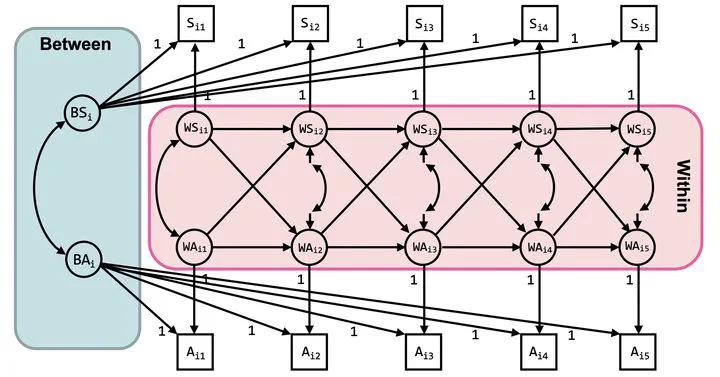Three extensions of the random intercept cross-lagged panel model
Aug 11, 2020·,
Jeroen D. Mulder
Ellen L. Hamaker

Abstract
The random intercept cross-lagged panel model (RI-CLPM) is rapidly gaining popularity in psychology and related fields as a structural equation modeling (SEM) approach to longitudinal data. It decomposes observed scores into within-unit dynamics and stable, between-unit differences. This paper discusses three extensions of the RI-CLPM that researchers may be interested in, but are unsure of how to accomplish: (a) including stable, person-level characteristics as predictors and/or outcomes; (b) specifying a multiple-group version; and (c) including multiple indicators. For each extension, we discuss which models need to be run in order to investigate underlying assumptions, and we demonstrate the various modeling options using a motivating example. We provide fully annotated code for the R package lavaan, and Mplus on an accompanying website.
Type
Publication
Structural Equation Modeling: A Multidisciplinary Journal, 28(4)